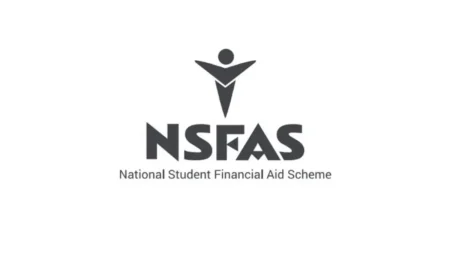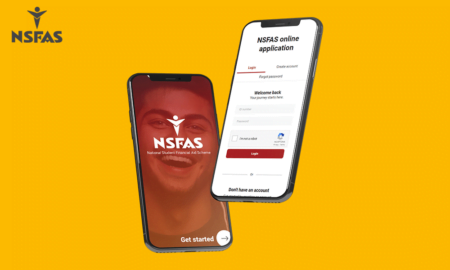Applying for NSFAS (National Student Financial Aid Scheme) funding in 2026 can be a life-changing opportunity for South African students. However, one of the most common reasons applications get delayed or rejected is missing or incomplete documents. To make sure your application goes smoothly, it’s crucial to know exactly what documents you need before applying.
Why Having the Right Documents Matters
NSFAS uses these documents to verify your eligibility for funding. They assess your financial situation, family circumstances, and other factors that influence the amount of funding you may receive. Missing or incorrect documents can result in delays, rejection, or even losing your chance to receive funding for the academic year. Being prepared ensures that your application is processed quickly and accurately.
Core Documents Required (for All Applicants)
All NSFAS applicants must have these essential documents ready:
South African ID: A copy of your valid ID or green bar-coded ID book.
Proof of Income: This could include payslips, tax certificates, or an employer letter.
Bank Statement: A copy of your bank statement to confirm your banking details for the NSFAS disbursement.
Academic Record: Your latest results or qualifications, such as your matric certificate or Grade 12 results.
Proof of Residence: A utility bill, affidavit, or municipal letter confirming where you live.
Additional Documents Depending on Situation
Depending on your personal and family circumstances, NSFAS may require additional documents. Here’s what to prepare:
If Parents Are Unemployed
Unemployment affidavit from the Department of Labour or a sworn statement from a commissioner of oaths.
UIF statements or supporting letters if applicable.
If Receiving a SASSA Grant
SASSA card or award letter confirming the type and amount of grant received.
Any recent SASSA statements showing consistent payment.
If Orphaned
Death certificates of parents.
Guardianship or care order documents if applicable.
If Living With a Guardian
Legal guardianship documents.
Affidavit from the guardian confirming that you live with them.
If Person With a Disability
Medical or disability certification from a recognised health professional.
Social worker reports, if available.
If Married Student
Marriage certificate.
Spouse’s proof of income (if applicable).
Any joint financial statements if you and your spouse share finances.
How to Prepare These Documents
Check Expiry Dates: Make sure all certificates, statements, and IDs are valid.
Keep Originals Safe: Originals may be needed for verification; scan or make copies.
Organise by Category: Use folders or digital files to separate documents by type.
Check NSFAS Guidelines: Visit the official NSFAS website to confirm which documents are required for your situation.
Common Mistakes to Avoid
Submitting expired or unofficial documents.
Uploading blurry or unreadable copies.
Forgetting to provide documents specific to your circumstances (e.g., orphaned, disabled).
Using outdated financial statements.
Step-by-Step Checklist for NSFAS 2026 Applicants
Gather your South African ID.
Collect proof of income for yourself and your parents/guardians.
Obtain your latest academic record.
Gather proof of residence.
Prepare additional documents relevant to your personal situation.
Scan or copy all documents clearly.
Organise everything in one place, ready for online submission or in-person verification.
Double-check that all documents meet NSFAS specifications.
Read more: How NSFAS Uses Third-Party Data (SARS, Credit Bureaus) for Eligibility
FAQs
Q1: Can I apply for NSFAS without a bank account?
Yes, but you will need to open a South African bank account before funds can be disbursed.
Q2: Do I need to submit original documents?
NSFAS generally requires certified copies for submission. Originals may be requested for verification.
Q3: What if my parent is self-employed?
You’ll need a letter from a commissioner of oaths, your parent’s tax returns, and proof of income.
Q4: Can I submit documents late?
Late submission may result in delays or rejection, so always submit by the NSFAS deadline.
Q5: What if my SASSA grant has changed?
Provide updated documentation showing the new amount or status.
Q6: Do international students qualify for NSFAS?
No, NSFAS funding is only available for South African citizens.
Q7: How do I certify my documents?
Documents must be certified by a commissioner of oaths, police officer, or bank official.
Q8: Can I apply if my parents are separated?
Yes, provide documents for the parent you live with or who provides financial support.
Q9: Are digital copies accepted?
Yes, for online applications, clear digital scans are accepted, but they must be legible.
Q10: What happens if I submit incorrect documents?
Your application may be delayed, rejected, or flagged for verification. Always double-check before submission.
Also check: How to Apply for NSFAS 2026: Step-by-Step Guide
Being fully prepared with the correct documents is crucial for a successful NSFAS 2026 application. From your ID and proof of income to additional documents for special circumstances, every piece plays an important role in securing funding. Start gathering and organising your documents early to ensure a smooth application process and increase your chances of getting financial support for your studies.










